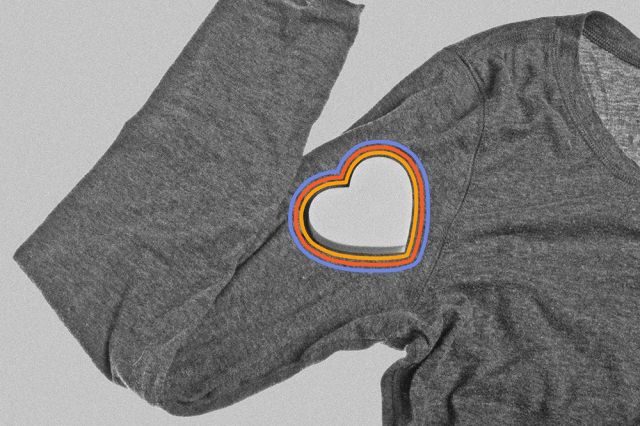
“Wear Your Heart on Your Sleeve”
To wear your heart on your sleeve is to be honest and open about your feelings. The phrase is generally believed to have originated in the Middle Ages. It was the custom then for jousting knights to wear some sort of insignia on their arm that indicated the ladies for whom they were hoping to triumph, thus proclaiming their love to the world.

“Pardon My French”
In England, in the early 1800s, people would “beg pardon” for using French words in conversation. Forgiveness was requested in these instances because most people did not speak French, and furthermore, the Napoleonic Wars had left a residue of animosity between the two countries. By the mid-1800s the phrase had evolved to refer to swear words specifically. It’s worth noting that the Cambridge dictionary defines the idiom as something to be said when pretending to be sorry for offensive language.

“The Best Thing Since Sliced Bread”
In 1928, when inventor Otto Frederick Rohwedder of Davenport, Iowa, first released his bread loaf-slicing invention, the advertisement claimed it was “the greatest forward step in the baking industry since bread was wrapped.” Riffing on the theme, customers began to compare all later inventions to his, and the modern idiom evolved from there.
More Interesting Reads

“With Flying Colors”
This idiom dates back to the Age of Exploration, the period when European explorers first set off across the seas. If a captain had been successful in his venture, he would order the crew to fly their country’s flag (or “colors”) to announce their victory before arriving back at the home port. Originally, the phrase “with flying colors” simply meant that a mission had been completed without disaster, but over the centuries the idiom came to signify great success.

“Apple of My Eye”
To be the apple of someone’s eye is to be their most adored companion, but what exactly is an eye apple? This idiom is one of the oldest in the English language, traced back to the ninth century. Back then, it was assumed that the pupil of the eye was a round, solid object, and it was often compared to an apple, as apples were a commonly known round object. The delicate nature of sight (and its tendency to fade with age) made vision precious and over the years the phrase “apple of my eye” came to be used in reference to anything or anyone a person held dear.

“Head Over Heels”
If one stops to think about it, being “head over heels” is actually how most humans spend their days. So how did this common, everyday state of being come to signify romance? In the 1300s, the phrase “head over heels” was used more literally to describe someone tumbling through a handstand or cartwheel, but by the 1800s writers had begun to use the phrase idiomatically to describe someone who had fallen hopelessly in love.

“Buttering Up”
To butter someone up is to beguile them, or to lavish them with praise to get what you want. The idiom evolved from the very literal buttering that takes place as part of the Hindu tradition of throwing balls of clarified butter (called ghee) at the statues of deities. In exchange for the offering, it was thought that buttered-up gods would reward the faithful with a good harvest.

“Cutting the Mustard”
There is much speculation regarding the origin of this idiom, but the most reputable sources trace its usage from the late 1600s when the phrase “keen as mustard” was used to describe someone of high standards. Combined with “cutting,” which is often used in place of “exhibiting” (think: cutting a fine figure), and you get the modern, idiomatic equivalent of “exhibiting high standards.”











